The VALO-CD is a project with the mission of making it as easy as possible for any average home of office user to start using Free and Open Source Software. Traditionally open source software has been a thing only known by computer enthusiasts while the average Joe has only known about (closed source) software from big brands like Microsoft and Adobe. The VALO-CD was made to change that by packaging open source software in the same way as people used to closed source software where used to.
If you haven’t tried VALO-CD yet, check out the latest version 9 which was released in September 2013.
The design goal was that all the end user is expected to do, is pop the CD in their computer. Then a menu would appear, where the user can then easily browse, read about, look at screenshots and install the programs. VALO-CD does not try to contain as much as possible of everything, but instead a defined set of the best-of-the-breed applications that are most likely to interest the end users. On VALO-CD there has always been only one application per use case so that the users don’t need to make any comparisons or decisions themselves (many people don’t like freedom of choice, as it forces them to take some responsibility of their actions and that leads to stress). For the Finnish version we made sure that all programs are translated, so users can use them in their native language. The website, the case containing the disc, the disc and everything inside was made to look professional and trustable. Looking good is being good.
Most importantly, even though the disc and all programs are downloadable online, we made sure that a physical product exists and you can mail order it or buy if from stores. It is simply because many people believe that real software comes in a box.
The VALO-CD project been a great success, gaining lots of publicity both here in Finland and internationally, and introducing Free and Open Source Software to a large amount of regular users who have been very thankful for being introduced to the open source software ecosystem, something they didn’t even know existed. VALO-CD has of course been on Slashdot, Hacker news and the usual, but it was understandable and interesting enough to be covered also in e.g. women’s lifestyle magazines.
As Windows was the monopoly we wanted to tackle, VALO-CD targetted Windows users. Numerous experiences show that the low barrier to start using e.g. Firefox and LibreOffice in Windows is a step that users actually manage to do, and later on they will be much more likely to migrate the underlying OS to Linux with a help of a professional than it they in one step tried to jump to full scale Linux desktop usage. So called “slippery slope” tactics work in this case. And yes, we later managed to get some Ubuntu press released into women’s lifestyle magazines too. VALO-CD has been an important tool for open source advocates in Finland, and hopefully in many other places too.
Since 2008 in Finnish and 2011 in English
VALO-CD started back in 2008 in Finnish only. Since 2011 also English editions started to appear. In the gallery below you can see the first version of the website.
- The first VALO-CD website version released in 2008
- The latest looks of VALO-CD.net
- The latest looks of VALO-CD.fi (Finnish version)
- VALO-CD v9 main view after popping the CD in a Windows machine
- The view when opening a program description page (this case LibreOffice)
Following the minimum viable product idea we started with the disc first as a Finnish fork of the Open CD and with a simple website. Later we hired a professional graphics artist to design the logo and sexy website, then we rewrote the CD user interface. First CD labels where self printed using LightScribe, and later with bigger volumes we got professionally printed labels and discs. In parallel we also improved the infrastructure bit by bit and built a cool system where all contents is easily editable in an online wiki where contributors can help, and then the build system downloads that data via the Mediawiki API and creates the disc. Everything about the project is transparent and following best open source project management guidelines with public version control, mailing lists etc. The project was presented e.g. at FSCONS and FOSDEM and we had contributors making their own versions in Estonian and in Hungarian.
No VALO-CD version 10 anymore, but maybe LibreKey?
Now after releasing the 9th version of VALO-CD, it is time to put and end to the project at least with the current branding. Most new laptops don’t have any CD/DVD trays anymore, so the primary format should be a USB stick. Also with tablets and mobile ecosystems out-growing the old crappy Windows desktop monopoly, maybe people don’t anymore expect proper software to come in a box, but rather in from an app store?
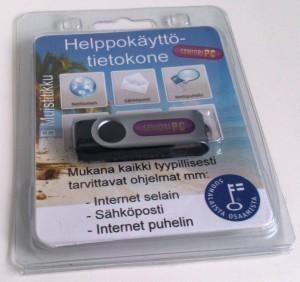
SenioriPC.fi is distributed also as a USB key package
The USB stick would allow for much more contents and thus there could be more software, and there could be both Windows and Mac versions of all software, as Mac has become much more common than what it was in 2008 when VALO-CD launched. The USB stick could even be bootable and contain the Linux distribution, so that with the stick could be used for all phases of Windows to Linux migrations. A USB stick would also have re-sale value, unlike old CDs, and if the version number is not printed on the USB stick, the same physical USB stick can be refurnished with a new “LibreKey” version. And if the product terms like Open and Key in the product name, a copywriter has plenty of material to come up with a cool slogan about having a key to open up your closed source software habits.
As a USB stick is writeable, there could be some kind of portable home directory inside it and if the apps are portable, the “LibreKey” could free people from being tied to specific work stations.
Maybe there could be some deal with USB stick manufacturers that all their new USB sticks would come pre-loaded with this great collection, thus providing their customers greater incentive to buy their brand of USB sticks? Or is there something better than a USB stick, maybe some ultra cool website portal and cloud based installer in style of Ninite.com (but of course with no closed source software). How will tablets affect average users, will that break the Windows monopoly by itself so there will be no need for anything like VALO-CD anymore, as everybody are anyways using Android, Ubuntu, FirefoxOS, Tizen and SailfishOS tablets (which all are Linux)? Maybe the solution would be to have some kind of universal and appeling online open source app store, which can also be saved as an offline collection (with of course only a subset of all programs available).
What we learned
There is only one thing with VALO-CD that we think failed. Despite contacting over 60 computer stores, book stores and many big department stores, we never got the product any proper visibility on the isles of real stores. We did in co-operation with the Tampere university of technology an market study and we hired a salesman with the only task of pushing VALO-CD to stores, but without success. Computer stores didn’t like our product because it was too cheap (compare MS Office has a retail price of 600 € and we recommended VALO-CD to be sold at 20 €), but for book stores and department stores the price wasn’t an issue as they are used to sell large volumes of less expensive products (e.g. milk). Purchasing agents where positive towards us and they didn’t have anything to complain about the product, but they never actually committed to take VALO-CD into their chain’s sortiments. Maybe there is some secret sales man code or bribe system we didn’t figure out. If we start developing something like LibreKey, the most important thing would be to involve the department store purchasing agents early on and keep them involved and focus strictly on making a product and sales case such, that the product will get on the shelves of big stores and thus get their machinery and volume benefits.
Despite having the design goal of having the same external attributes as traditional closed source to match the expectations people have of software (physical boxes, shiny package, nice looking logo, ease of use etc) there where one aspect where we where radically different: price. Based on the market study the price of VALO-CD was fixed at 20€. A smaller price would have less credibility and a larger price would make the physical box seem overpriced (as the contents is free to copy and anyway the whole CD and all the programs can be downloaded from the VALO-CD website for free). However perhaps for the sake of the business ecosystem and sales chain a price closer to that of MS Office or Adobe Photoshop would be better. A possible solution would be to co-sell support services from open source companies like (Seravo, SUSE or Collabora) with the box and call it the business edition. The price could be 199€ and inside the box there could be a card with a code that grants access to a help desk portal. Perhaps the 199€ could be the first year cost of a subscription service, and in the online portal the customer could easily renew it. For the price the customer could get a fixed amount of support tickets or perhaps a defined amount of expert time that can be used to support or development according to customer wishes. Maybe the sum could give the right to vote in a big development roadmap poll and thus let customers feel they really are in control, just like the ideology of open source promises.
If you read this article with interest and would like to be involved in how the story continues, please subscribe to the VALO-CD developer mailing list and present yourself there, or contact Seravo directly if you have a confidential offering.
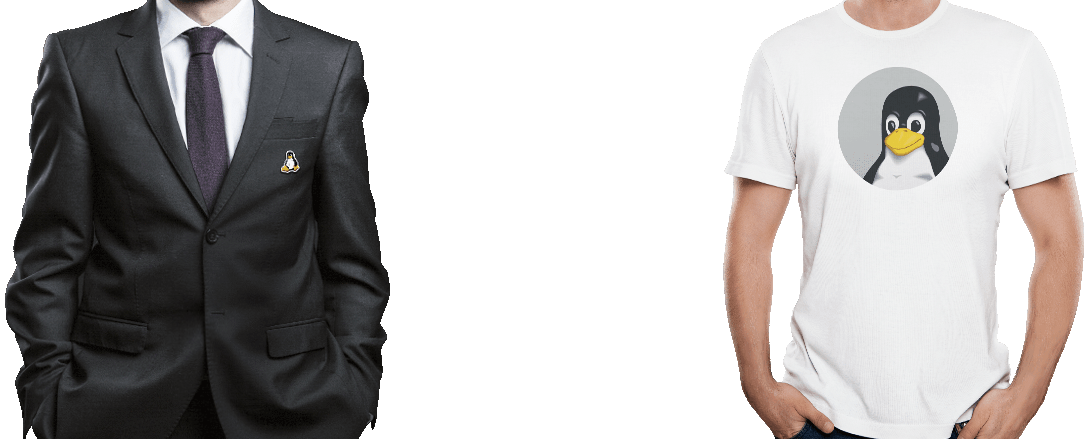


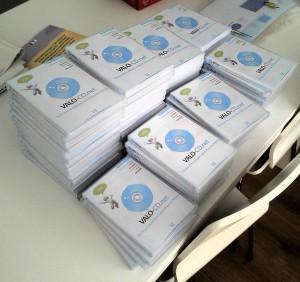
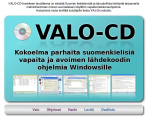


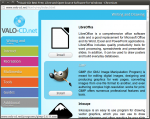


One thought on “Past, present and future of VALO-CD”